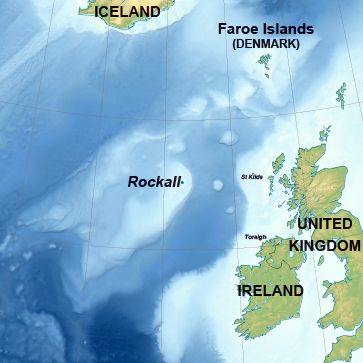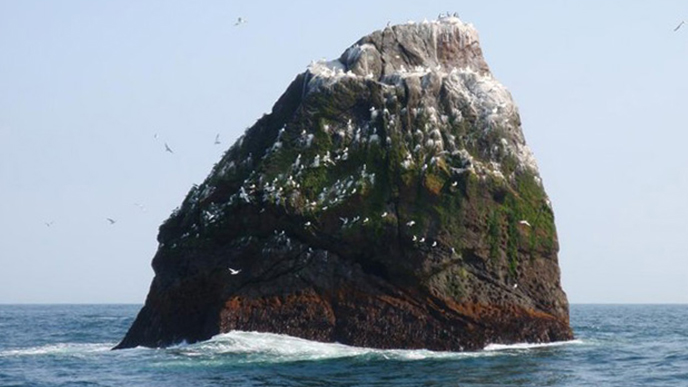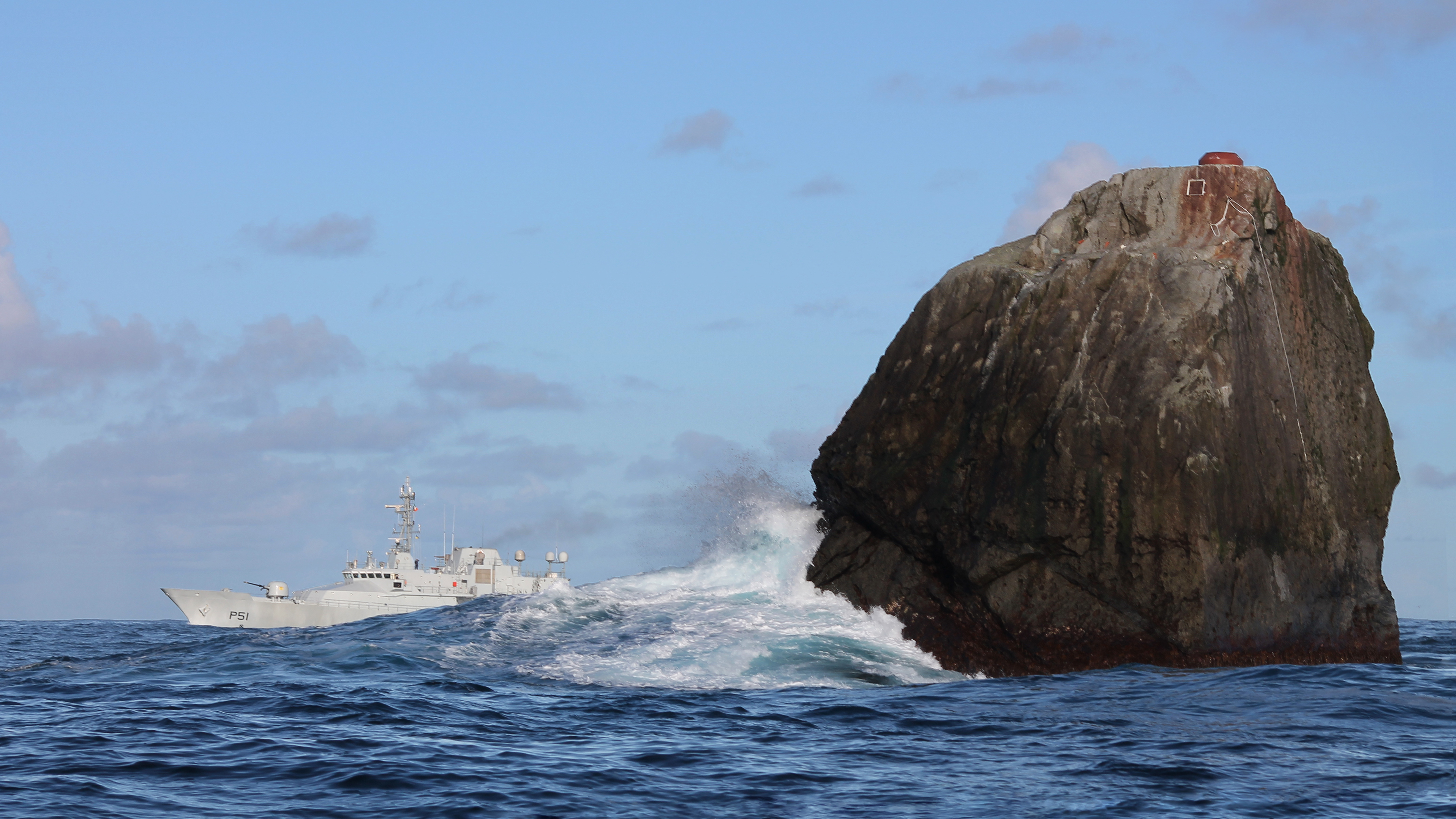 The rock in the North Atlantic Ocean.
‘…200 miles from Donegal, there’s a place called Rockall…’ sing Irish folk group, The Wolfe Tones, in their popular song, Rock On Rockall. The song draws attention to an historic dispute over ownership of the place that is Rockall, though calling it a ‘place’ maybe overdoing it somewhat. Rockall is aptly named: it is a rock and that’s about all it is! At least, at the surface!
The rock in the North Atlantic Ocean.
‘…200 miles from Donegal, there’s a place called Rockall…’ sing Irish folk group, The Wolfe Tones, in their popular song, Rock On Rockall. The song draws attention to an historic dispute over ownership of the place that is Rockall, though calling it a ‘place’ maybe overdoing it somewhat. Rockall is aptly named: it is a rock and that’s about all it is! At least, at the surface!
Lying-in the North East Atlantic, some 162 nautical miles from the island of Soay, in the St Kilda group, and 230 nautical miles North West from Donegal, Rockall does not even qualify as an island. Yet it is claimed by Scotland and the UK, and would be in Scottish waters, the Scottish Government argues, were Scotland to be independent and outside the UK. However, it is also the subject of international dispute, a dispute which has been raised at European Commission level and which has drawn competing views from a variety of experts in international and maritime law. While it is often said that the rock is claimed by the Republic of Ireland, this has been disputed by Leo Varadkar, the Taoiseach, speaking in 2019: ‘We don't have a claim on it. We don't accept any other sovereign claim on it’.
Ownership of the rock is also disputed by Denmark – on behalf of the Faroes - and by Iceland. One very small rock, measuring just 70 feet high and 100 feet wide, is therefore central to a long-existing territorial dispute between at least four separate countries. Of course, that Rockall sits in waters that contain rich fishing grounds, and the potential for huge oil and gas resources, is the primary source of the interest in this single unforgiving and unliveable rock.

Arguably there can be few places in the world, so small, so isolated, and so perilous, that have generated international disputes, and filled as many newspaper and online column inches as has Rockall. The dispute goes back to the middle of the twentieth century and has been the source of much of this media attention at different periods since. In mid-2019, for instance, then Scottish Fisheries Minister, Fergus Ewing, warned that Irish fishing trawlers could be boarded by Scottish fishery protection vessels if they fished within 12 miles of the rock. Amidst contested claims that this warning was the Scottish Government laying down a marker following the 2016 Brexit Referendum and was made during the discussions then taking place between the UK Government and European Union over the UKs departure from the EU, the Irish Government was strident in opposing the views expressed by Ewing.
Within a week of the Brexit withdrawal negotiations being concluded at the end of 2020, tensions emerged once again between Ireland and Scotland. On New Year’s Day, 2021, crew from a Scottish Fisheries vessel stopped and boarded a Donegal based trawler, the Northern Celt, that was allegedly fishing within the disputed 12 miles limit around the rock.
Dismissing claims by the Scottish Government that this boarding was simply a ‘routine inspection’, Irish authorities made contact with its Scottish and UK counterparts to voice concerns about the incident which saw the Irish vessel given a temporary licence to fish in UK waters, but not within 12 miles of Rockall.
To return to the Wolfe Tones: this dispute will no doubt continue to ‘rock on’, but perhaps a new version of their song will have to be written, with Scotland identified as the imperial aggressors and not the UK or England. What remains to be clarified though, is whether the patrol boat was operated by and under the orders of Marine Scotland, or a UK government agency, a matter of some debate on social media. Once more, the place that is Rockall is the subject of yet more media attention.




Rate and Review
Rate this article
Review this article
Log into OpenLearn to leave reviews and join in the conversation.
Article reviews